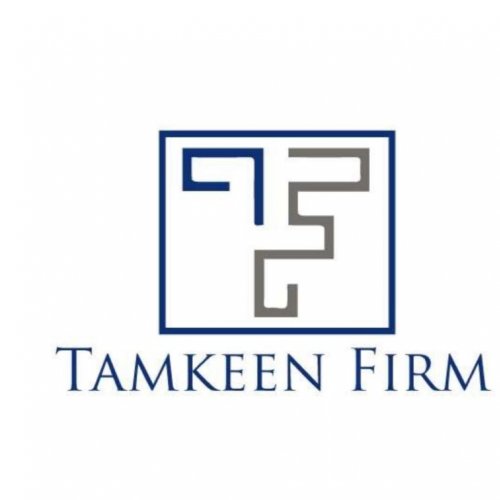Best Private Equity Lawyers in Tripoli
Share your needs with us, get contacted by law firms.
Free. Takes 2 min.
List of the best lawyers in Tripoli, Libya
About Private Equity Law in Tripoli, Libya
Private equity in Tripoli, Libya, refers to investment activities where funds and investors directly invest in or acquire private companies that are not listed on public exchanges. This sector includes the formation, structuring, acquisition, and management of private equity funds and portfolios. The Libyan market for private equity is gradually developing, with local and regional interest increasing as the country stabilizes and grows economically. However, the private equity landscape in Tripoli can be complex due to evolving legal frameworks and shifting regulatory environments.
Why You May Need a Lawyer
Private equity transactions involve intricate legal, financial, and regulatory issues. Engaging a lawyer with experience in private equity is essential for various reasons:
- Structuring investment funds and partnership agreements
- Advising on the acquisition or sale of private companies
- Conducting due diligence on target businesses
- Drafting and negotiating legal documents such as share purchase agreements
- Ensuring compliance with local investment and company laws
- Mitigating risks related to foreign investment restrictions
- Advising on exit strategies and dispute resolution mechanisms
- Handling regulatory approvals and anti-money laundering requirements
A specialized lawyer can help you navigate the challenges of private equity transactions in Tripoli and protect your interests throughout the investment cycle.
Local Laws Overview
Private equity activities in Tripoli, and Libya as a whole, are governed by several key laws and regulations:
- Company Law: The Libyan Commercial Code regulates the formation, operation, and structure of companies. It dictates requirements for local ownership, director appointments, and company registration procedures.
- Foreign Investment Law: Foreign investors must comply with regulations set by the Libyan Investment Authority, which oversees the approval of foreign direct investment, including joint ventures and ownership limits.
- Taxation: Corporate tax rates, withholding taxes, and other fiscal policies affect investment structures and returns. Understanding local tax burdens is essential for fund structuring.
- Labor Law: Employment regulations impact due diligence and post-acquisition integration, especially with respect to employee rights and obligations.
- Exchange Controls: Libya applies various currency controls affecting cross-border payments, profit repatriation, and capital movement.
- Anti-Money Laundering: The Libyan government imposes rules to prevent illicit financial activities in private equity transactions, requiring customer due diligence and document retention.
Due to ongoing legal reform and potential amendments, it is essential to consult a lawyer to get up-to-date information and ensure compliance.
Frequently Asked Questions
What is private equity, and how does it differ from public equity?
Private equity refers to investment in companies that are not publicly traded on stock exchanges. Private equity investors often take active roles in management, aiming to increase the value of the business before exiting through a sale or public offering. In contrast, public equity involves shares in public companies with less direct influence over management.
Can foreign investors participate in private equity in Tripoli?
Yes, foreign investors can participate in private equity transactions in Libya, but they must adhere to foreign investment law, which may restrict foreign ownership percentages and require approvals from the Libyan Investment Authority.
Are there any restrictions on the sectors open to private equity investment in Libya?
Yes, certain sectors are restricted to Libyan nationals or subject to government approval. These include natural resources, defense, and media. Legal advice is required to identify available sectors for investment.
What is the process for setting up a private equity fund in Tripoli?
Setting up a private equity fund typically involves incorporating a legal entity, drafting fund documentation, registering with authorities, and ensuring compliance with investment, tax, and anti-money laundering laws.
What due diligence is required when investing in Libyan companies?
Due diligence typically covers legal, financial, and operational areas, including company structure, contracts, liabilities, regulatory compliance, assets, and tax history.
How are private equity transactions typically structured?
Structures vary but often involve share purchase agreements, shareholder agreements, and sometimes joint venture arrangements. The specifics depend on parties, sector, and investment goals.
What legal documents are required when investing in private equity in Tripoli?
Common documents include term sheets, share purchase agreements, shareholder agreements, due diligence reports, board resolutions, and regulatory filings.
Are there exit restrictions or options for private equity investors in Libya?
Exit options can be limited by local laws, market conditions, or restrictions on share transfer. Common strategies include sale to strategic buyers, secondary buyouts, or initial public offerings. Legal guidance is crucial to plan a viable exit.
How are disputes resolved in private equity transactions?
Disagreements are usually settled based on dispute resolution clauses in the investment agreements. Options include Libyan courts or arbitration under internationally recognized rules.
What are the main risks involved in private equity transactions in Tripoli?
Risks include regulatory changes, political instability, issues with foreign currency repatriation, limited transparency in target companies, and challenges enforcing contracts. Legal advice helps minimize these risks.
Additional Resources
For further information and official guidance on private equity in Tripoli, Libya, consider contacting the following resources:
- Libyan Investment Authority (LIA): The primary regulatory body overseeing foreign investment and private equity activity in Libya.
- Tripoli Chamber of Commerce: Offers support and resources for business registration and sector-specific regulations.
- Libyan Ministry of Economy and Trade: Sets policies related to commerce, mergers, acquisitions, and foreign investment.
- Local law firms specializing in corporate and investment law: Many firms provide tailored guidance for international and local investors.
Staying connected with these entities ensures access to the latest updates and compliance information.
Next Steps
If you are considering a private equity investment or transaction in Tripoli, Libya, the following steps are recommended:
- Identify your investment goals and potential target sectors.
- Consult with a qualified local lawyer experienced in private equity and investment law.
- Conduct thorough legal and financial due diligence on prospective companies or funds.
- Ensure compliance with all relevant Libyan laws and obtain required governmental approvals.
- Negotiate and sign all necessary agreements, with legal protection for your interests.
- Stay informed about changes in regulations and market conditions through reputable local sources.
Remember, every private equity transaction is unique, and having expert legal support will help you navigate the complexities and safeguard your investment.
Lawzana helps you find the best lawyers and law firms in Tripoli through a curated and pre-screened list of qualified legal professionals. Our platform offers rankings and detailed profiles of attorneys and law firms, allowing you to compare based on practice areas, including Private Equity, experience, and client feedback.
Each profile includes a description of the firm's areas of practice, client reviews, team members and partners, year of establishment, spoken languages, office locations, contact information, social media presence, and any published articles or resources. Most firms on our platform speak English and are experienced in both local and international legal matters.
Get a quote from top-rated law firms in Tripoli, Libya — quickly, securely, and without unnecessary hassle.
Disclaimer:
The information provided on this page is for general informational purposes only and does not constitute legal advice. While we strive to ensure the accuracy and relevance of the content, legal information may change over time, and interpretations of the law can vary. You should always consult with a qualified legal professional for advice specific to your situation.
We disclaim all liability for actions taken or not taken based on the content of this page. If you believe any information is incorrect or outdated, please contact us, and we will review and update it where appropriate.











